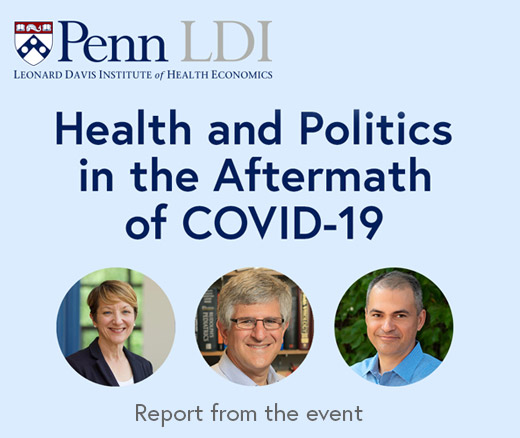
Contradictions That Confuse Federal Food Policies
Announcing Bold New Goals While Crippling the Infrastructure Needed to Achieve Them
Population Health
Blog Post
The White House announced on April 26 that it would indefinitely delay the ban on menthol cigarette sales. If passed, this ban would have averted over 650,000 deaths over the next 40 years, and would have led 4.5 million Americans who smoke menthol cigarettes to quit entirely. This delay means that menthol cigarettes will continue to cause suffering and kill many more people of color, LGBTQ+ individuals, and those with lower incomes who use menthol cigarettes at higher rates.
As the menthol ban hangs in limbo, people who cannot quit smoking those products altogether could be advised to shift to less harmful alternatives. These so-called modified risk tobacco products (MRTPs) are less dangerous than traditional cigarettes, according to the Food and Drug Administration (FDA). But they have generated limited sales, in part because they use ineffective advertising and must undergo an onerous authorization process.
MRTPs are defined as products that “reduce harm or the risk of tobacco-related disease,” according to section 911 of the Federal Food, Drug, and Cosmetic Act (FD&C Act).
To be authorized, a product’s manufacturer must show it will benefit the health of the population as a whole. Since 2019, the FDA has authorized 16 products as MRTPs, including one brand of menthol-heated tobacco sticks, three brands of mint or wintergreen smokeless tobacco, and one brand of menthol reduced-nicotine cigarettes.
But the MRTP pathway falls far short of encouraging the roughly 18 million adults using menthol cigarettes to switch completely to these alternative products if they cannot quit.
The MRTP program took effect in 2010, 12 months after the landmark Family Smoking Prevention and Tobacco Control Act was enacted in 2009. As of December 2023, the FDA has received 48 applications for MRTP authorization over 13 years, although 11 of them were withdrawn by the applicants.
After 2021, there have not been any new applications for MRTP authorization in the pipeline. The 16 authorized MRTPs represent a fraction of a market with hundreds of commercial brands and many other forms of tobacco.
Makers of alternatives to cigarettes are not clamoring to use this pathway. Increasing the appeal and streamlining the MRTP pathway will be necessary to ramp up applications from manufacturers.
Even though electronic cigarettes pose lower health risks compared to smoking cigarettes, no e-cigarette brand is currently authorized as an MRTP. This is a missed opportunity because e-cigarettes can benefit adult smokers who are not pregnant if used as a complete substitute for cigarettes, the Centers for Disease Control and Prevention (CDC) says. In addition, Black and Hispanic adults who use menthol cigarettes prefer menthol-flavored e-cigarettes.
Provisions to speed up the MRTP authorization process could be considered to increase the number of applications from e-cigarette brands, with an emphasis on menthol-flavored e-cigarettes. This would rapidly expand access to lower-risk e-cigarette options and address health disparities from menthol cigarette use.
Currently, MRTP marketing claims are not effective in convincing people who smoke that the products are less harmful than cigarettes. In one study, our team looked at the marketing claims used by two FDA-authorized MRTPs, and found that only 1 in 4 people who smoke cigarettes believe that a product with MRTP claims is much less harmful or addictive than cigarettes. This misconception can stop people from considering a switch to lower-risk tobacco products.
We need MRTP marketing claims to convey their reduced harms. We also need to determine what types of marketing claims will encourage more people who smoke to consider switching entirely to MRTPs.
For example, one study among people who smoke showed that hypothetical general claims about completely switching to a heated tobacco MRTP outperformed specific claims—such as switching from cigarettes will reduce the risk of lung cancer and exposure to arsenic.
With the menthol cigarette ban uncertain, the path for low-risk tobacco product authorization needs to be reimagined to nationally increase MRTP availability, access, and appeal among people who use menthol cigarettes.


Announcing Bold New Goals While Crippling the Infrastructure Needed to Achieve Them

Promising New Evidence and What’s Next

From 1990 to 2019, Black Life Expectancy Rose Most in Major Metros and the Northeast—but Gains Stalled or Reversed in Rural Areas and the Midwest, Especially for Younger Adults

A Penn LDI Seminar Focuses on Why They’re Important for the Future

Former Philadelphia Health Commissioner Warns That Gutting the CDC, Undermining Vaccines, and Politicizing Science Will Leave the U.S. Dangerously Unprepared for the Next Pandemic

Rural Parents Had More Emergency Visits and Insurance Loss Than Urban Peers, an LDI Study Shows. Integrated Baby Visits Could Help All Parents Be Healthier